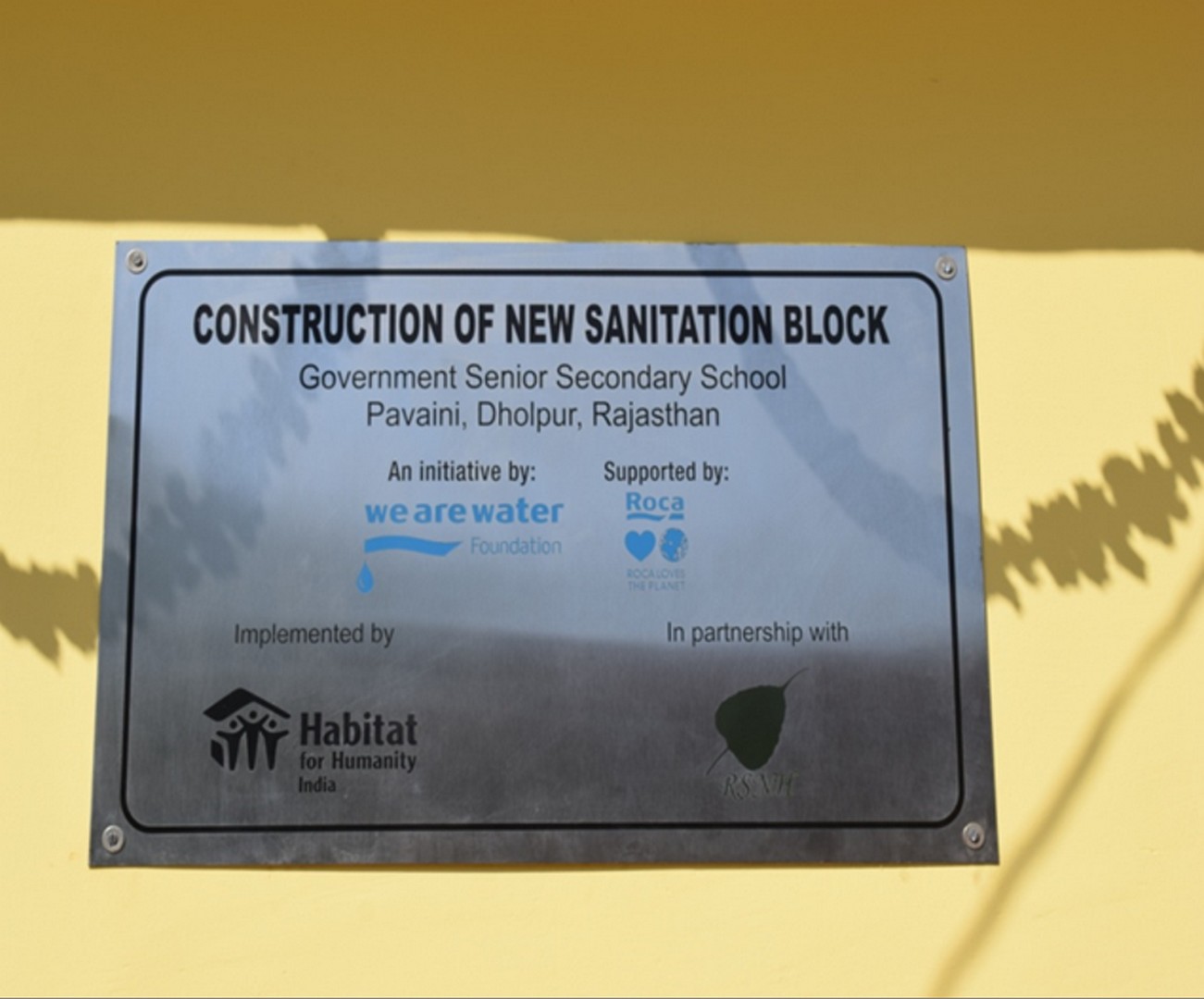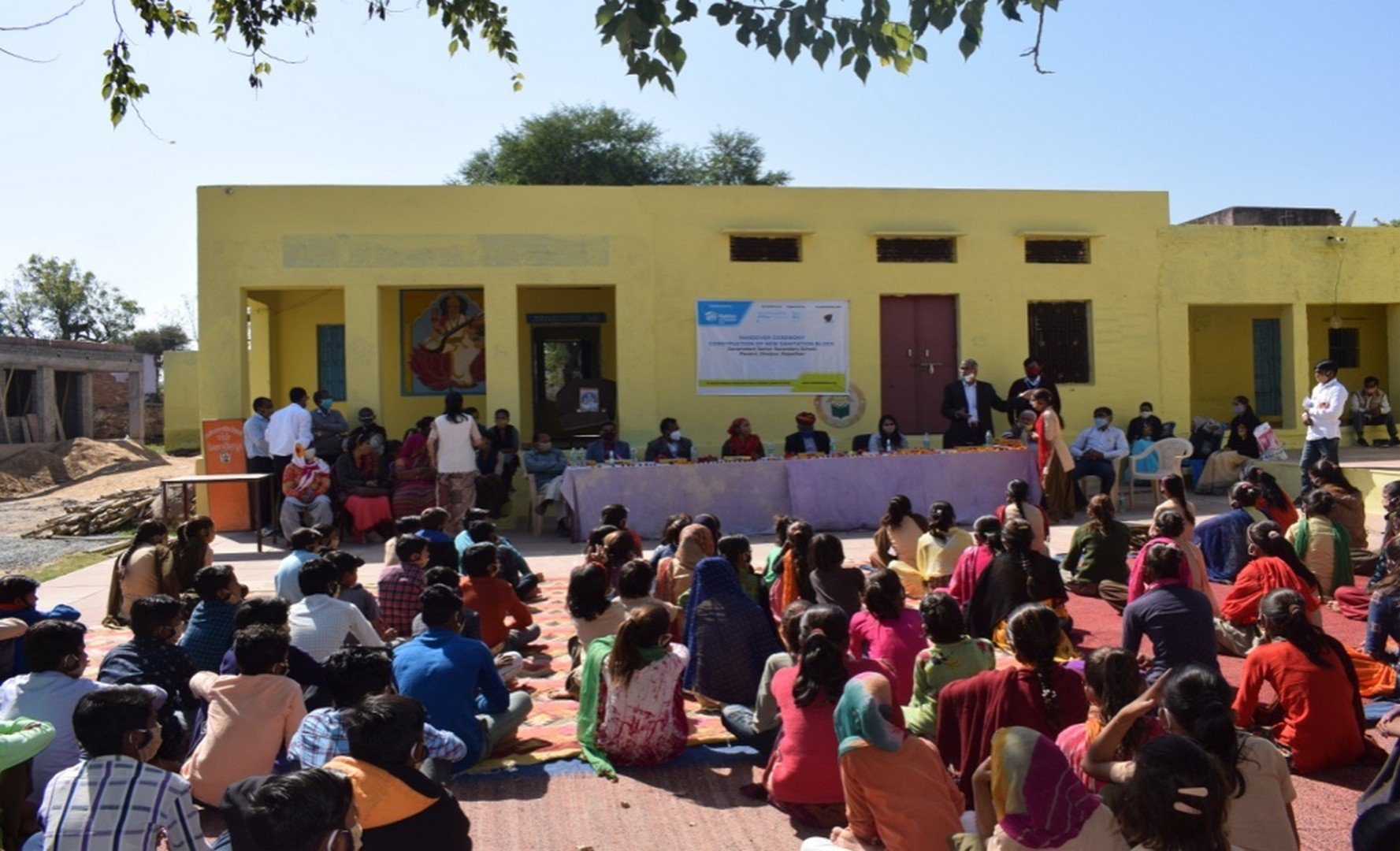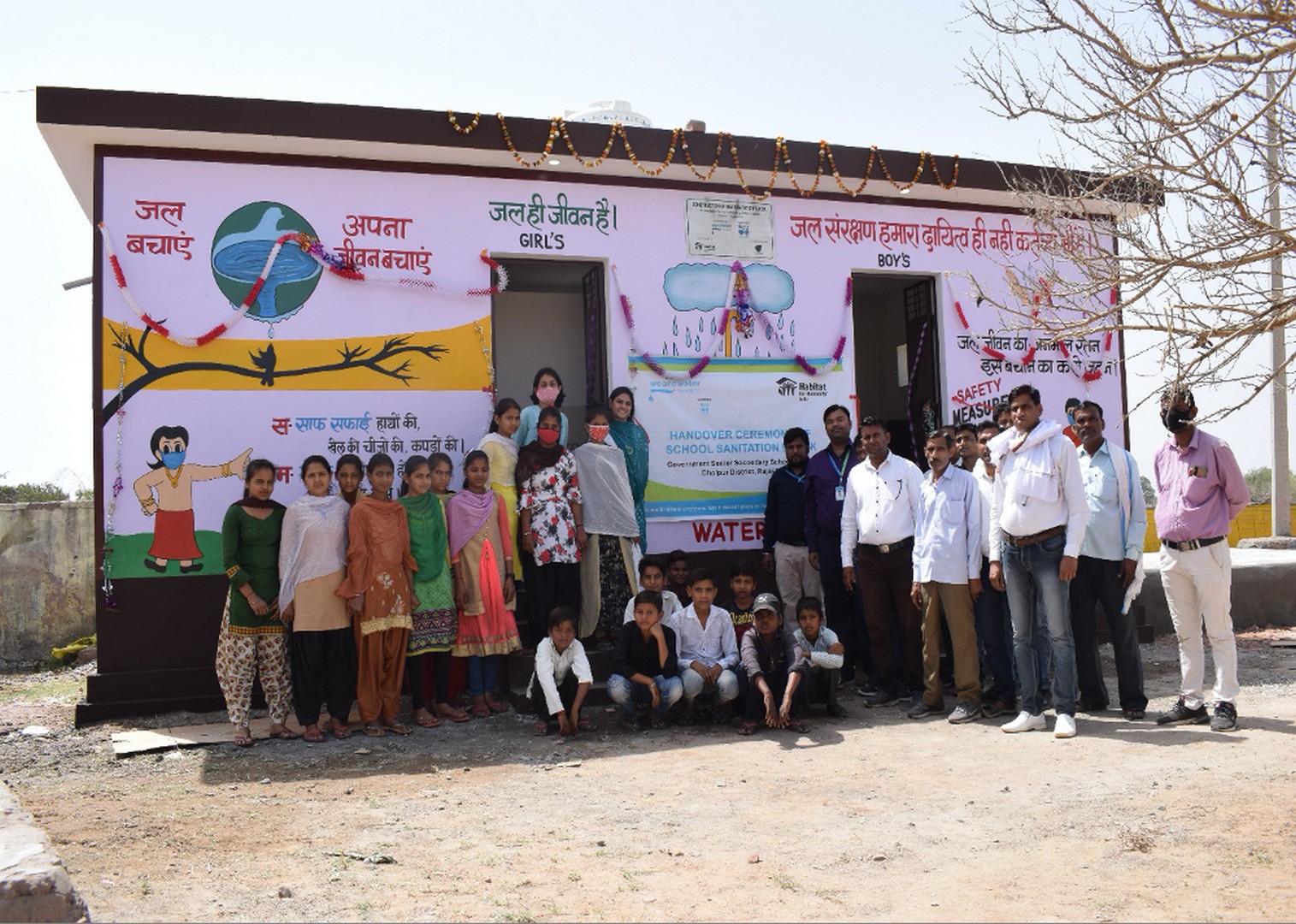Baseri Block in Dholpur district of Rajasthan, India
In collaboration with

March 2021 – September 2022
Improved sanitation and access to safe drinking water in four schools by constructing sanitation blocks. Secure drinking water systems have also ensured access to clean drinking water for students and teachers.
Objectives
- Construction of four sanitation complexes, separate for boys and girls, in the schools, with handwashing stations.
- Development of a communication plan for behavior change regarding personal and community hygiene.
Beneficiaries
More than 1,000 directs
Students from the four schools.
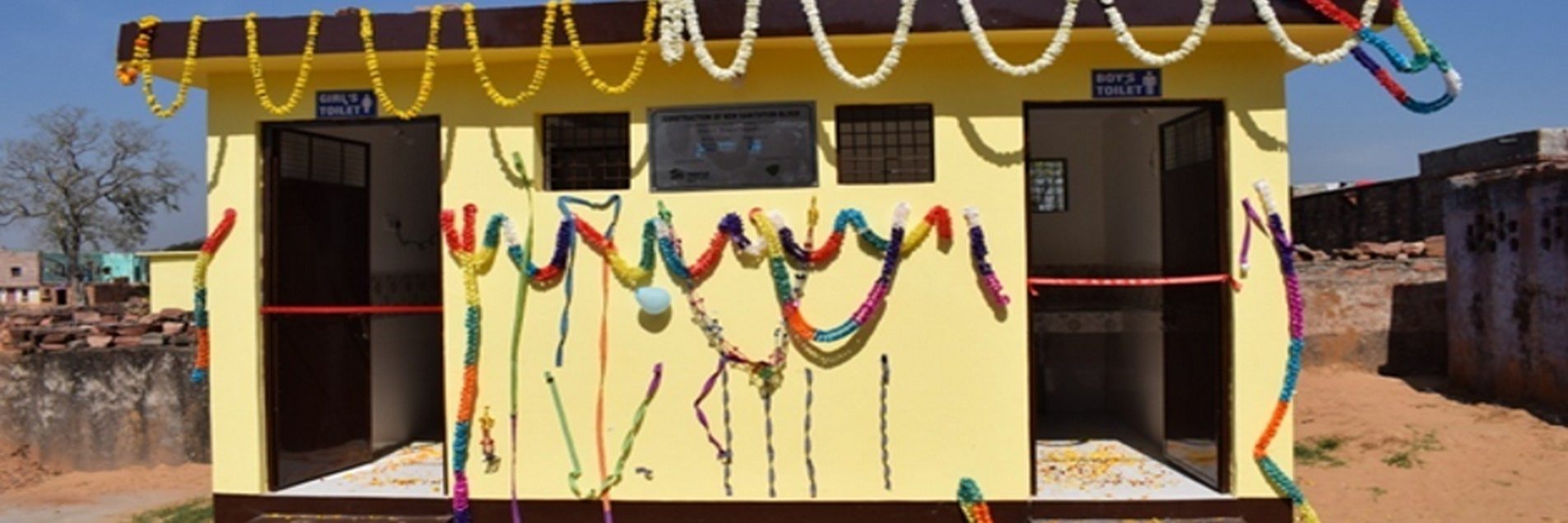
On the ground
Lack of safe, child-friendly sanitation and handwashing facilities. Low awareness about the importance of water and sanitation and appropriate hygiene practices.
Baseri schools did not have adequate sanitation facilities, such as separate units for boys and girls and handwashing stations. This situation affected the privacy, dignity, and hygiene of the students, their health, and their ability to learn and develop fully.
There needs to be a higher level of awareness about the importance of water, sanitation, and good hygiene practices. All this contributes to the spread of diseases and makes it difficult to change behavior towards healthier practices that affect communities’ well-being and quality of life.
Community participation in water and sanitation management and the need for a community governance system for sustainable water use and facility maintenance are problems that coexist in these situations.
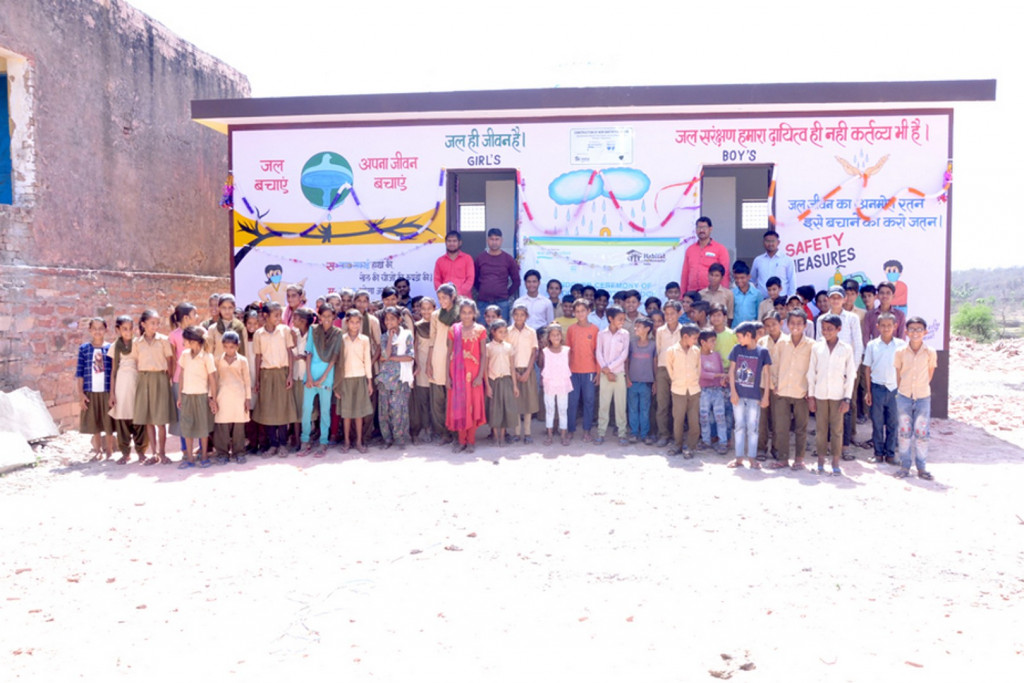
In detail
Construction of four sanitation complexes in the schools of the villages of Leelothi, Mothiyapuram, Durgesi, Vasantpura.
The schools were selected based on a survey conducted by local volunteers from Habitat for Humanity India. In addition, the recommendation of the Pradhan (the head of the Panchayat, the democratic institution responsible for local administration and decision-making in the village) and the District Education Officer of Dholpur district were taken into account.
TThe project development proceeded as follows:
- 1. Situation analysis and initial assessment. Several rounds of meetings were conducted with the education officer and the Pradhan of the village to identify the schools.
After the recommendation of the education officer, an initial survey was conducted. - 2. Construction. The construction of four school sanitation blocks and four safe drinking water systems with storage and cooling capacity was carried out in the government secondary schools of Leelothi, Mothiyapuram, Durgesi, and Vasantpura.
The sanitation units in the schools of Leelothi, Mothiyapuram, and Vasantpura are 37.5 square meters (with incinerator), and the one in Durgesi is 18.7 square meters (with incinerator). - 3.Masonry training by project engineers and staff.
- Purchase of construction materials was made through partner organizations following collaboration agreements made by Habitat for Humanity India with the project partners.
- Behavior Change Communication (BCC) training program.
The program was conducted in the four schools to promote better hygiene practices. It was followed the Training of Trainers (ToT) model, involving students and school staff.
Training activities included group discussions, painting, games, and Information, Education, and Communication (IEC) materials distribution. The BCC training program encompassed a variety of activities aimed at educating and raising awareness among the participants about the importance of hygiene and sanitation.
Various group discussions were held.
- Learning through painting: Students were asked to share their learnings through paintings.
- Games and group activities were organized.
- Illustrative murals were painted on the walls of the newly constructed sanitation blocks in the four schools.
Prospects of sustainability
Schools now have improved hygiene, safe water, and sanitation facilities. These improvements will benefit the health and hygiene of students, especially girls, who will now have more privacy and dignity. These improvements could also increase the number of new students. In addition, the local NGO associated with Habitat for Humanity will carry out workshops and awareness-raising activities in schools and villages to further support the culture of water, sanitation, and hygiene that is the basis of the project’s sustainability.


